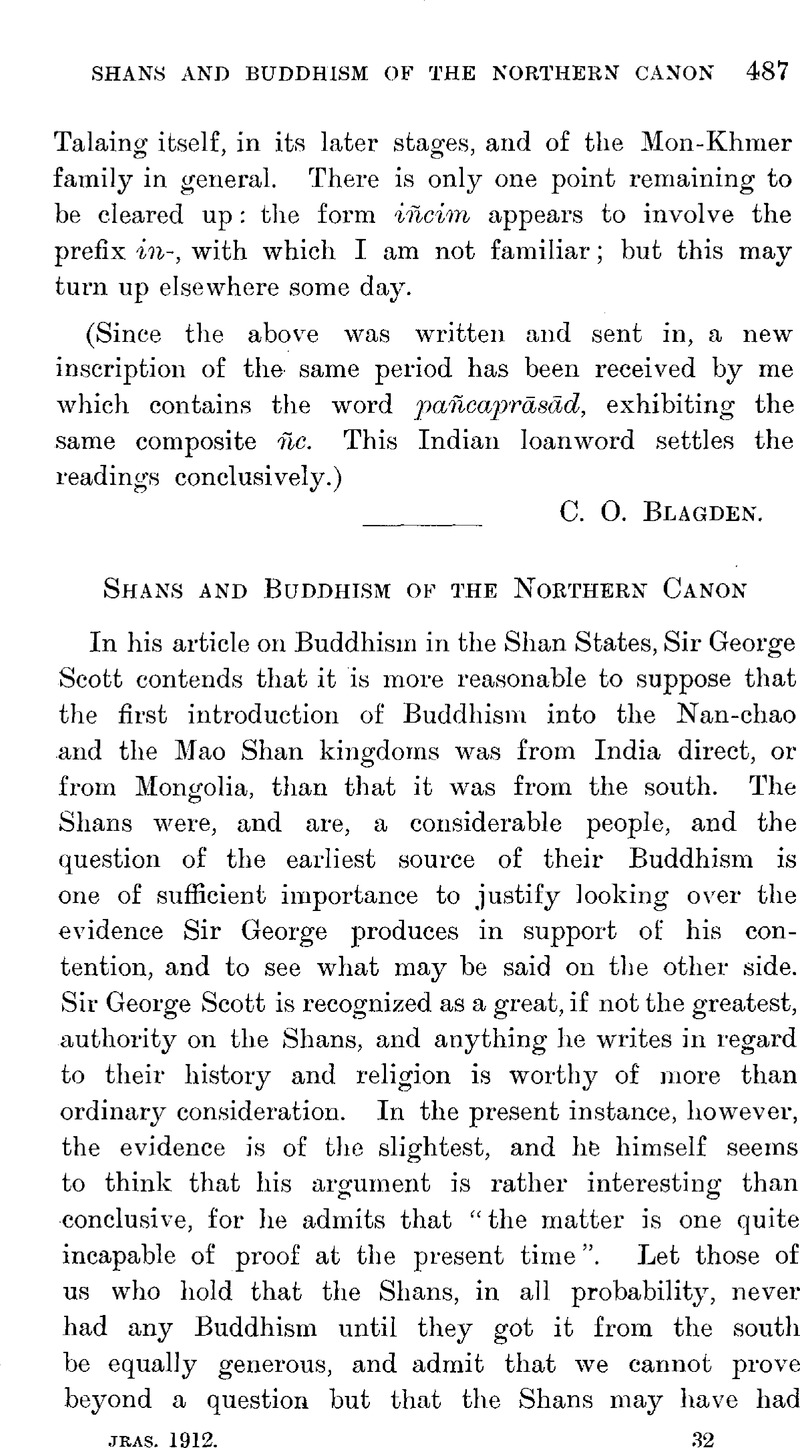No CrossRef data available.
Published online by Cambridge University Press: 15 March 2011

page 490 note 1 Literally, “silver of lords, origin of kings,” i.e. the pure original (line of) kings. Sao is Shan; hkun (and its couplet kwan) seem to be variants of hkan.
page 490 note 2 As to the meaning of “Möng-hi Möng-ham”, I have ascertained that hi means “long”, and ham is not the couplet but co-ordinate, with the meaning “abandoned, deserted”; hence the name means “the long sparsely settled region”.
page 492 note 1 The Shan here is ya hseng hpa, “heavenly-jewel-lady.” The Shans of Yunnan still use ya in speaking of any old lady, and, in polite address, of young ladies as well; hence the queen, instead of the queen-mother, may be meant. It is more probable, however, that the aged mother would be called for consultation, as in this case.